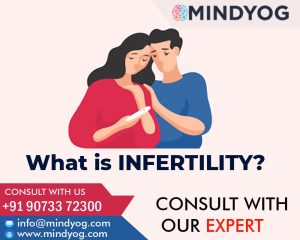What is the difference between stress and anxiety?
Stress is the strain or pressure while can be both psychological and physical which a person goes through when he is in challenging or dangerous situation Stress is body’s reaction to a trigger and is generally a short-term experience. Positive stress is called eustress e.g.: when a father is stressed due to preparation of daughter’s marriage, when you finish your project last minute, and negative stress is called distress which happens when we perceive some threat to us and it leads to insomnia, poor concentration, poor memory etc.
On the other hand, anxiety is a sustained mental health condition which can be triggered due to stress and it doesn’t fade away once the situation has changed.
What are different types of disorders due to anxiety? How can we diagnose it?
There are different types of disorders that can occur due to prolonged distress and anxiety and in some cases depression also coexist. The different types of anxiety disorders being:
- Phobic anxiety disorder: here anxiety is evoked only in well-defined situations or through objects. Which are not dangerous but the patient tries to avoid at any cost. They are divided into different category like social phobia, agora phobia, and specific phobia.
- Panic disorder: Recurrent attacks of severe anxiety can take place, which can happen at any place and time, therefore can’t be predicted. Symptoms like palpitation, dizziness, choking sensation, feeling of unreality, and fear of dying, losing control are common.
- Generalised Anxiety disorder: also called free floating anxiety. As the name suggests it is generalised and not specific to situations. The anxiety is normally for day to day activities.
- Post-traumatic stress disorder: this is the disorder where the patient is unable to recover after going through a threatening or dangerous situation which was catastrophic in nature example natural or manmade disasters like terrorist attack, violent death of a closed one, rape, accident etc. symptoms may include episodes of repetitive reliving of trauma, flashes from the past, numbness etc. These symptoms can lead to negative changes in thoughts and mood and can cause significant problems in social or work situations and in relationships.
- Dissociative disorder: a person experiences a disconnection or lack of continuity between thoughts, memories, actions and his surroundings. Previously it was called hysteria but that terminology is no longer used. Dissociative disorders usually develop as a reaction to trauma and helps to suppress the difficult memories. This could be an unconscious way of dealing with extreme stress which the person is going through. Types comprise of : dissociative fugue, dissociative amnesia, France and possession disorder, dissociative stupor, dissociative disorder of movement and sensation, dissociative identity disorder, multiple identity disorder (split personality)
My physician says I have an anxiety disorder? Whom should I see next?
Initially a family doctor or general physician can help you in identifying if you are suffering from any kind of anxiety disorder. If the diagnosis is done properly then he can refer you to a clinical psychologist. The clinical psychologist can administer some psychological tests to check the severity of anxiety and understand the entire case history. After that a proper treatment plan would be discussed between the professional and patient. If anxiety is severe he can further refer you to a psychiatrist to give medications. A collaborative treatment plan of medicines and psychotherapy gives the best results.
Are there different therapy plans for different anxiety disorders?
Yes, according to the case history and symptoms a proper treatment plan is made. There are a variety of therapies which a professional gives depending upon the diagnosis. For example to treat phobic anxiety disorder the therapist may choose systematic desensitisation plus muscle relation techniques can be used, for OCD a combination of ERP and CBT is the first line treatment, For PTSD eye movement desensitisation and reprocessing + CBT May be used, dissociative disorders are best treated by self-hypnosis and interpersonal therapy. Kindly seek a licensed professional only to get help instead of seeing videos online and administering the therapies on yourself or with someone who isn’t a professional.
MindYog
Address: Signet Tower, 9th Floor, DN-2, DN Block, Sector V, Bidhannagar, Kolkata, West Bengal 700091
Phone: 090733 72300


